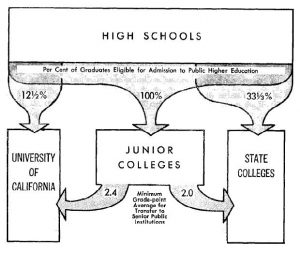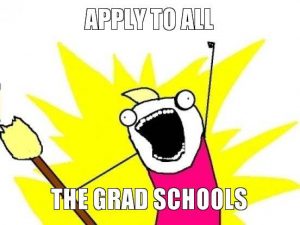Today, we discussed and learned a lot about the large picture of higher education and student affairs. Dr. David Nestor began by asking each about our own institutions. We discussed the California Master Plan.

Basically California has three different kinds of institutions each designed for different kinds of students and the idea is to make education accessible to all students. The University of California is designed for the top 12% and is the main producer of research. State colleges allows for 33% of students to attend and is more directed toward vocational training: becoming a teacher, a nurse, etc. Lastly, the junior colleges were supposed to create a free education that was accessible to all people. However, these institution’s goals have changed which have been primarily due to funding. Funding is something that I had never thought about, but after our discussion with Dr. Nestor, it really opened my eyes to the issues that higher education faces when it comes to funding.
We then moved on to discuss the formation of Student Affairs. Basically, Student Affairs was created because of the need to support students when faculty were being moved more to research and the number of students increased dramatically after World War II. So all of that was interesting to see the need that students had to for support and how for one Dean of Students it was too much work which is where we got all the departments of student affairs.
Dr. Nestor ended the conversation by giving us tips on graduate school. He told us his top picks and not to accept a graduate school where we have to pay. His final words were very inspiring because he told us to dream as high as we possibly could, even if that meant President of an institution. Basically he said not to limit ourselves. I really enjoyed the conversation we had because we were able to learn about the profession and hear professional advice about graduate school. It was both informative in general, but a nice way to connect with Dr. Nestor.

